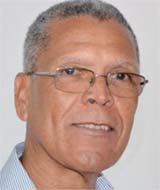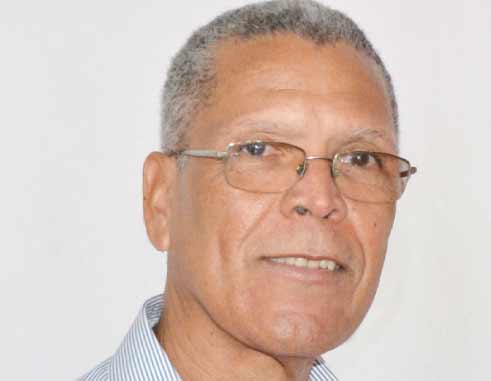
“WHO we go put?”– “None of the above!”
Our Constitution is not serving us well, and having long ago recognised that, we appointed a Constitutional Review Commission in 2007 to make recommendations for its reform. That Review was completed in 2011, with the Report eventually making its way to Parliament in 2015. Nothing came out of it.
But most of us already know the principal reform that we want: that on Election Day we elect a Prime Minister and then elect independent constituency representatives. In reality we are already halfway there, as on Election Day we invariably vote for the candidate of the party whose leader we hope to become Prime Minister.
Our Constitution however does not recognise political parties, requiring instead that the Prime Minister should be the person with the support of the majority of elected representatives. In practice though, this means that the person who leads the party winning the most seats automatically becomes Prime Minister and a Cabinet is then formed from among the elected members of that party. This is the root of the problem.
With our current electoral system, constituency representatives are elected based on the popularity of the leader of the party to which they belong, the popularity of that party in general, and on the basis of the popularity of the candidate within the particular constituency. It’s a popularity contest, but once elected, that constituency representative invariably becomes a Minister.
There is no requirement for demonstration of any particular skill or knowledge by a candidate prior to election, but the issue of maintaining the stability of the winning party means that persons least qualified to hold any post in government or business are often to be found holding ministerial portfolios.
The Constitutional Reform Commission however reports that the direct election of the Prime Minister was one of the recommendations most often made by persons offering their comments to the Commission. Unfortunately, this recommendation was not accepted as the Commission felt that our people might not have been ready for such a radical departure from the existing system of government. Let me assure the Commissioners that we were ready then, and we are even more ready now.
It does not take much to discover the level of dissatisfaction that we have with our electoral system as nearly half of our eligible voters are now disconnected from the process – 52% of eligible persons voted in the 2016 election, dropping from 57% in the 2011 election. This is especially disturbing, as if we assume that the bases of both parties are mobilised, and vote, then it would appear that electoral outcomes are now especially dependent on those persons constituting the base of each party.
And if we also assume that significant segments of those bases comprise persons who are least informed and equipped for the electoral process, (we cannot deny the existence of “chicken and rum politics” or the rolled up T-shirts containing inducements), then the depth of the problem becomes evident. We have no choice but to find an alternative to this two-party system.
I should also point out that these calls for change are not new, and this current view only represents a return to the ideals of the pre-independence debate.
On the passing of Mr Hunter Francois three years ago, many persons reading then editor Mr Guy Ellis’ tribute to him in this newspaper would have become familiar with Mr Francois’ call, prior to independence, for a one-party state. That call subsequently evolved to his call for a no-party state, and while on his passing we celebrated his life and achievements, we somehow sadly forgot the advice that he had given us 40 years ago. That advice is even more relevant today.
It is time now for us to revisit the idea of a no-party state. In making this call, we acknowledge former Ambassador Earl Huntley’s contributions on the topic of Constitution reform, as well as Mr Kensley Charlemagne’s repeated calls for electoral reform in this newspaper.
As a people, we know the Constitutional reforms that we want, and we’ve told the Constitutional Reform Commission. First and foremost, we want direct election of our Prime Minister. Then we want the election of Members of Parliament whose role will remain what they advertised to the electorate on Election day – that of providing representation of their constituents’ interests, not that of being Minister of Government.
We want the provisions recommended by the Commission for citizens’ right to appeal to the Courts on constitutional and administrative matters, (locus standi), and we want the obvious flaw in the mechanics of the appointment of the Attorney General fixed.
Then, there are the well-articulated recommendations made by Mr Huntley for reducing the number of constituencies and government ministries.
But we also know that the current members of Parliament have a vested interest in maintaining this dysfunctional system, and so the only hope for change is in the emergence of independent candidates at the next election, bound only by a commitment to reform of our Constitution and to reform of the electoral and legislative processes.
While seventeen independent members of parliament would be ideal, we in fact only need three successful independents to bring about change.
Three successful independents bound by a mechanism such as an undated letter of resignation if they were to join one party or another after having been elected would change the balance of power in Parliament. If the electoral outcome were to be 7-7-3, independents would control the Parliament, and this would remain the case until the outcome were to be 9-5-3 in which case the winning party would effectively have an unstable one-seat majority.
Three independent MPs committed to Constitution reform will be sufficient to force debate on the recommendations of the Constitutional Reform Commission in the House, and to force reluctant parliamentarians to bend to the wishes of the people.
We can do this.
Next week, we look at our democracy.














The only Sensible Choice next elections, for those who value Country over Party, will be the Independent Candidate in each District.